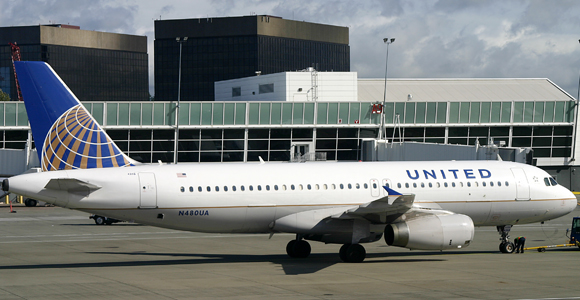You probably have seen it everywhere by now during the current 2019 Novel Coronavirus pandemic: corporate entities repeatedly espousing messages about how “we are all in this together” during “these uncertain times”; and how they continuously profess to convince you that they “have your back”…
Are We TRULY All In This Together? 2019 Novel Coronavirus Pandemic
…but how much of all of that is really true?
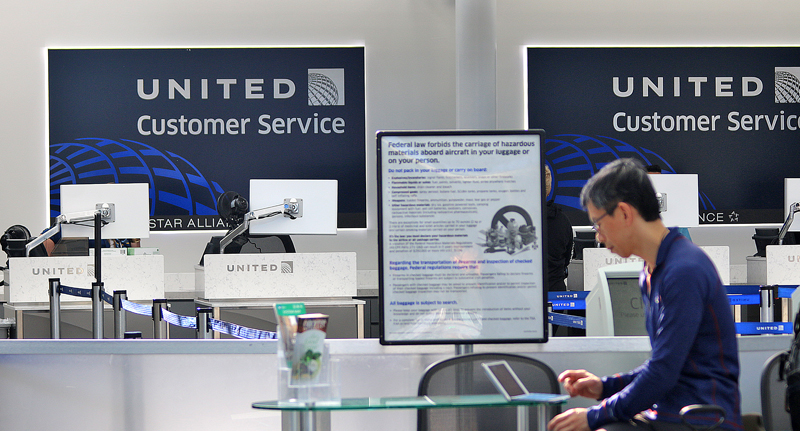
Let us start off with United Airlines, whose chief executive officer and president — Oscar Munoz and J. Scott Kirby, respectively — announced to employees earlier today, Thursday, April 16, 2020 that they may not have a job as soon as Thursday, October 1, 2020:
So, let us end where we began, the government funding we expect to receive soon is helpful in the near-term because we can protect our employees in the U.S. from involuntary furloughs and pay rate cuts through the end of September. But the challenging economic outlook means we have some tough decisions ahead as we plan for our airline, and our overall workforce, to be smaller than it is today, starting as early as October 1.
Those employees must not have exactly felt that warm and fuzzy feeling about their future with the airline, which provided a grim forecast for its own future:
We now expect United to receive approximately $5 billion from the federal government through the Payroll Support Program under the CARES Act – to be used to protect the paychecks of our United employees. This government support does not cover our total payroll expense, but we’re keeping our promise that there will be no involuntary furloughs or pay rate cuts for U.S. employees before September 30. And, payroll only represents about 30 percent of our total costs. Fixed operating and non-payroll costs like airport rent, supplies and infrastructure are significant and not going away. That’s why we’ve been so aggressive in reducing our schedule, slashing capital expenditures, scaling back our work with vendors and consultants and cutting executive salaries in half.
We’re planning to go even further to reduce costs. This weekend, we’ll load a revamped schedule that will further reduce our capacity to about 10 percent of what had been planned for May at the beginning of this year. We expect to announce similar reductions to the June schedule in the next few weeks. We have now essentially redesigned our network to be down 90 percent while complying with the CARES Act and maintaining connectivity among nearly all our domestic destinations. And these May and June schedule reductions will have direct consequences for our frontline employees in terms of total hours worked. Those work groups can expect to hear more details from their leaders soon.
The more flexibility we have from a payroll perspective, the better. So, all work groups can expect to see a continued emphasis on payroll cost cutting options over the next few weeks including new voluntary leave offerings and voluntary separation programs. For those who are eligible, please consider signing up for voluntary COLA and ANP days. We’re grateful to the more than 20,000 employees who have already signed up. Your sacrifice is both deeply appreciated and important to our company’s future.
These schedule changes reflect the stark reality of our situation – and unfortunately, it’s something that even legislation as large as the CARES Act can’t fix. Travel demand is essentially zero and shows no sign of improving in the near-term. To help you understand how few people are flying in this environment, less than 200,000 people flew with us during the first two weeks of April this year, compared to more than 6 million during the same time in 2019, a 97 percent drop. And we expect to fly fewer people during the entire month of May than we did on a single day in May 2019.
The historically severe economic impact of this crisis means even when travel demand starts to inch back, it likely will not bounce back quickly. We believe that the health concerns about COVID-19 are likely to linger which means even when social distancing measures are relaxed, and businesses and schools start to reopen, life won’t necessarily return to normal. For example, not all states and cities are expected to re-open at the same time. Some international travel restrictions will remain in place. Meeting planners and tour operators will do their best to accommodate people looking to avoid large crowds. So, while we have not yet finalized changes to our schedule for July and August, we expect demand to remain suppressed for the remainder of 2020 and likely into next year.
Airport Rent is a Fixed Cost — But…
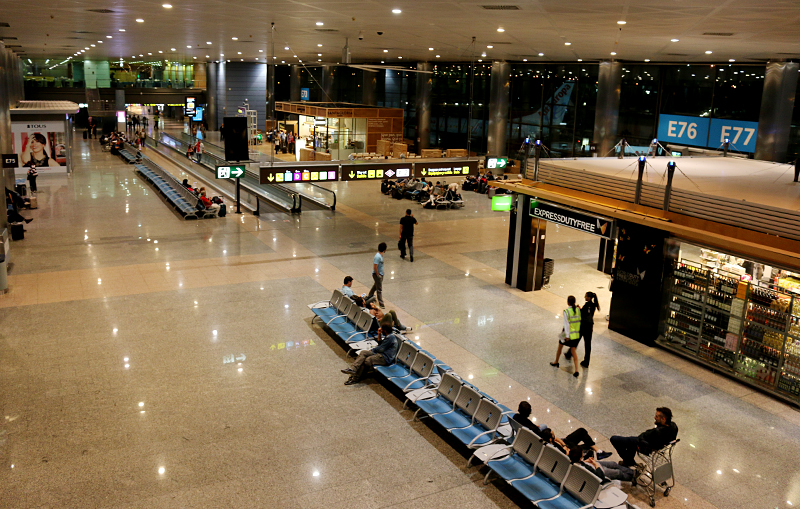
Multinational corporations such as United Airlines have a history of being able to negotiate costs in the past — as well as figure out creative ways to save money — even when the economy was doing well. Fuel tankering is one example, as it is a practice with which an aircraft carries more fuel than required for its next flight — usually, fuel for the trip itself plus reserve fuel — in order to reduce or avoid refueling at the destination airport.
Another example is when the sales and use taxes which are levied on jet fuel for all airlines that purchase fuel in the state of Georgia were suspended indefinitely effective as of Wednesday, August 1, 2018.
If “we are all in this together”, then rent at airports would likely be negotiated lower for the airlines as well during these “uncertain times” — especially as similar to airlines, greater than 3,000 airports in the United States have also received their varying portions of the stimulus package in the form of grants which were offered by the federal government of the United States —along with formulas from the Federal Aviation Administration of how the money was determined to be divided among the airports.
Ten of the busiest airports in the country are receiving hundreds of millions of dollars in aid:
- Atlanta — ATL: $338,535,265
- Chicago — ORD: $294,441,928
- Los Angeles — LAX: $323,636,269
- Dallas-Fort Worth — DFW: $299,199,046
- New York — JFK: $193,389,105
- Denver — DEN: $269,073,999
- San Francisco — SFO: $254,780,449
- Las Vegas — LAS: $195,485,334
- Phoenix — PHX: $147,883,988
- Houston — IAH: $149,187,874
Are Small Businesses Out of Luck?

The following announcement was posted at the official Internet web site of the Small Business Administration of the United States pertaining to the Paycheck Protection Program, which was supposed to aid small businesses through the economic downturn which resulted from the 2019 Novel Coronavirus pandemic — but the $376 billion has already been depleted:
Lapse in Appropriations Notice: SBA is unable to accept new applications at this time for the Paycheck Protection Program or the Economic Injury Disaster Loan (EIDL)-COVID-19 related assistance program (including EIDL Advances) based on available appropriations funding.
No new funding has been announced for those small businesses which are adversely affected and desperately need the financial infusion to survive — and some of them have already gone out of business altogether.
Do the proprietors of those small businesses which either went out of business or did not get funding from the Small Business Administration feel like we are truly all in this together?
Remember How Companies Treat You When Economic Times are Good
“What does irritate me, however, is the elusive reason as to why there are seven frankfurters to a package while a package of hot dog buns contains eight. What am I supposed to do with the leftover bun? Should I purchase eight packages of Hebrew National frankfurters and seven packages of hot dog buns to even everything out at a total of 56 hot dogs? I do enjoy eating frankfurters, but consuming 56 hot dogs is best left to a competitor at a hot dog eating contest.”
The paragraph you just read was from this article pertaining to where to get a frankfurter in New York, which I wrote here at The Gate back on Wednesday, January 3, 2018; and since then, the problem was solved…
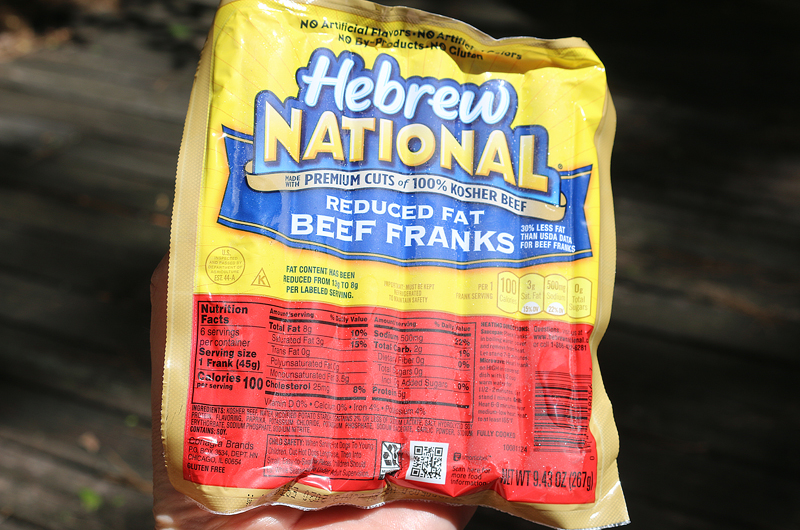
…for several months now, each package of Hebrew National beef franks only contains six frankfurters instead of seven.

Prior to 2010, consumers were able to purchase refrigerated juice by the half gallon, which is 64 ounces. That amount was quietly reduced to 59 ounces…
…but then — in the summer of 2018, and once again, with no notification — most of the companies which manufacture refrigerated juice further reduced the volume of the containers in which the juice is packaged…

…from 59 ounces to 52 ounces.

Hebrew National and Florida’s Natural are two brands whose products I enjoy; but I do not appreciate what essentially amounts to a hidden price increase. Does that mean they really “all in this together” with you and I through this pandemic? Neither of their Internet web sites proclaim it — nor do I expect it — as they are business entities for profit, which is fine…
…but speaking of hidden changes with little to no notice, let us return full circle to companies within the travel industry. Remember some of these headlines during better times in recent years?
- Devaluation of Best Western Rewards 2019 With No Notice or Warning Whatsoever
- More Hertz Gold Plus Rewards Devaluation: Point Usage Cancellation Policy Now in Effect
- Massive Devaluation of Hertz Gold Plus Rewards 2019 With No Notice or Warning Whatsoever
- The Ultimate List of Category Increases and Decreases 2020 for Marriott Bonvoy Hotel and Resort Properties
- So What is the Point of Announcing the Wyndham Rewards Award Category Changes 2020?
- Wyndham Rewards Changed Promotion Rules on Its Members Without Notice — Again?
- Another Reminder of Why Delta Air Lines Does Not Have to Give Notice of SkyMiles Redemption Increases
- The Double Whammy on Emirates Premium Class Awards by Alaska Airlines — and Why I am Not Surprised
Summary
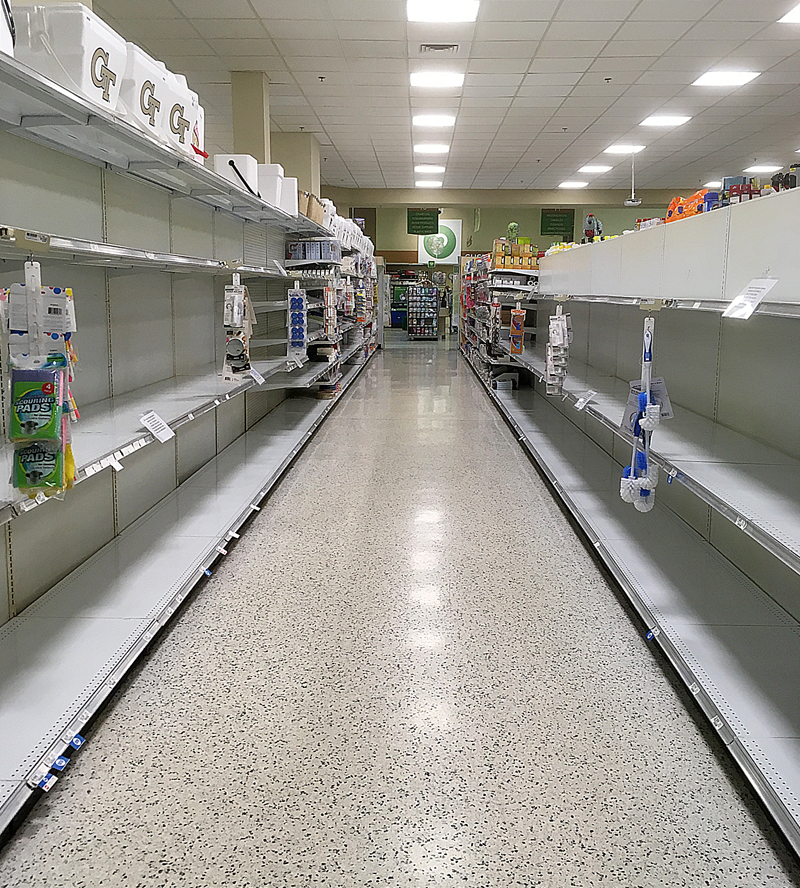
Despite the substantial loss in business — as well as a bleak outlook forecast for the near future — airlines still have negotiating power. If we were “truly all in this together”, then everybody would be working together to emerge victoriously from this pandemic.
If the airlines have not been able to reduce costs with their power of negotiation, that means that some entities up the supply chain are not doing their part in this pandemic; and therefore, they are truly not all in this together either.
Certain businesses and corporate entities are obviously using the current pandemic as nothing more than a blatant way to try to get your business. Does a law firm or a cable company really “have your back” and are they truly all in this together?!?
I say that we are not truly all in this together as a dose of reality and not necessarily in a negative context — and that is okay. Some corporate entities are out for profit — and there is absolutely nothing wrong with that, as long as they do not pronounce false claims.
The corporate entities who are truly all in this together with you and I do not need to repeatedly advertise it. Rather, they are the ones who are donating to those who are really suffering; voluntarily lowering prices and relaxing terms for their customers automatically; and helping their employees with everything they have to weather this pandemic.
I judge a corporate entity by their performance during good times; and I judge a corporate entity by their performance during challenging times. One company which comes to my mind is Hilton — and no, no affiliate link is here in this article on which you are to click. Regardless of how good or bad the times may be — for the economy or for the company itself — I rarely have a problem with doing business with Hilton as a customer for years; and Hilton has treated me very well. Hilton has also done its share with employees, customers, and for those who are truly in need.
Let us weed through the chaff: please list companies in the Comments section who you believe are truly all in this together with you and I — and the company does not need to be in the travel industry. You can also list individual people, if you like. We should honor those people and corporate entities who are truly all in this together with you and I by at least recognizing them — if not also patronizing them as well…
…but please do not be fooled by a corporate entity who claims to “have your back” during these “uncertain times” when all they are doing is advertising for your business under arguably false pretenses…
All photographs ©2013, ©2014, ©2017, and ©2020 by Brian Cohen.
